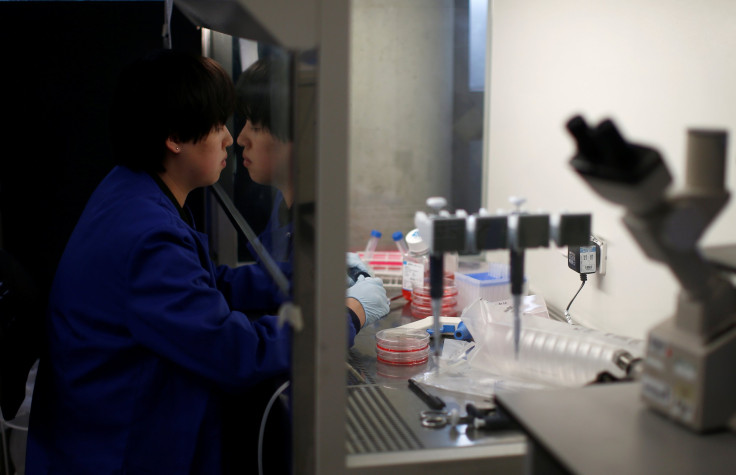Lung Cancer Breakthrough? Chinese Scientists' Gene-Editing Technique CRISPR Approved For Testing

In an attempt to treat lung cancer, a group of Chinese scientists is set to be the first in the world to inject patients with immune cells modified with a specific gene-editing technique, according to an exclusive report by Nature.
The technique, called CRISPR–Cas9 gene-editing, will be tested in a trial on patients with metastatic non-small cell lung cancer for whom chemotherapy, radiation therapy and other treatments have failed. The team at Sichuan University’s West China Hospital in Chengdu plans to start the trials next month.
The team plans to extract immune cells, called T cells, from the patients and then use the gene-editing technology to modify them in such a way that the engineered cells home in on the cancer when re-introduced to the patient.
"Treatment options are very limited," said Lu You, an oncologist at Sichuan University’s West China Hospital, to Nature. "This technique is of great promise in bringing benefits to patients, especially the cancer patients whom we treat every day."
EXCLUSIVE: Chinese scientists to pioneer first human #CRISPR trial https://t.co/Q18NYUcbWg pic.twitter.com/ojdgIL5Jjq
— nature (@Nature) July 21, 2016
The essential idea is that CRISPR techniques cut out bits of DNA from live cells, which can help the patients own immune system fight cancer. A specific protein gets knocked out inside the patient which triggers an immune response. One concern with the treatment technique is that it could trigger too large of an immune response, which means other areas of the body could be affected.
Wrote Nature:
The gene encodes a protein called PD-1 that normally acts as a check on the cell’s capacity to launch an immune response, to prevent it from attacking healthy cells.
The gene-edited cells will then be multiplied in the lab and re-introduced into the patient’s bloodstream. The engineered cells will circulate and, the team hopes, home in on the cancer, says Lu.
CRISPR techniques have drawn the attention of the scientific community, as well as Silicon Valley. Billionaire tech entrepreneur Sean Parker is set to fund the first trials using the technology in the U.S., Fortune reported. Parker formed a $250 million immunotherapy foundation aimed at testing new cancer treatments. National Institutes of Health approved the first trials June 21. The U.S. based trials are looking into treating three types of cancer: myeloma, melanoma and sarcoma.
© Copyright IBTimes 2025. All rights reserved.






















